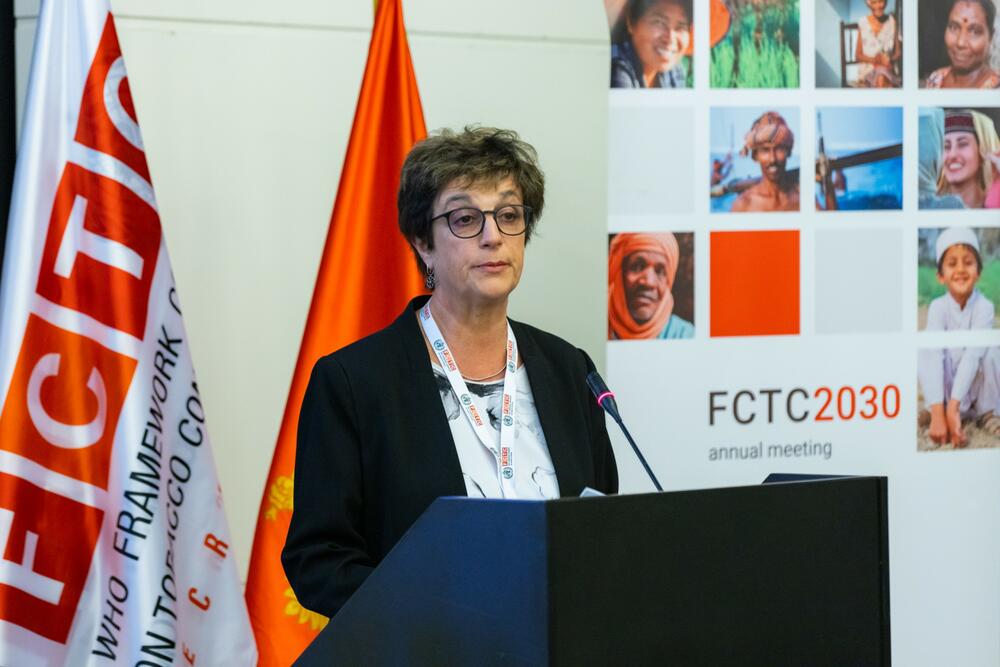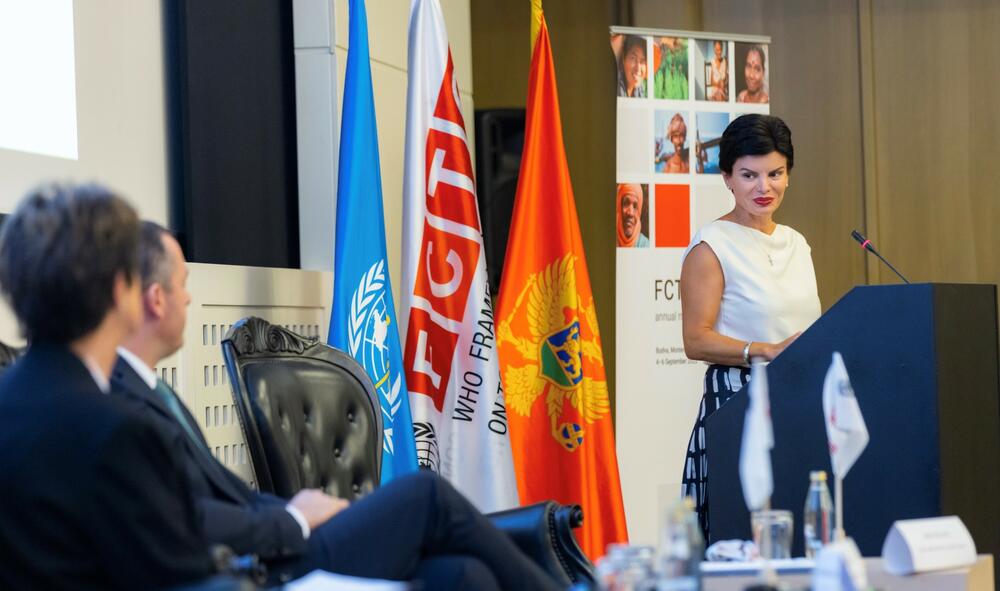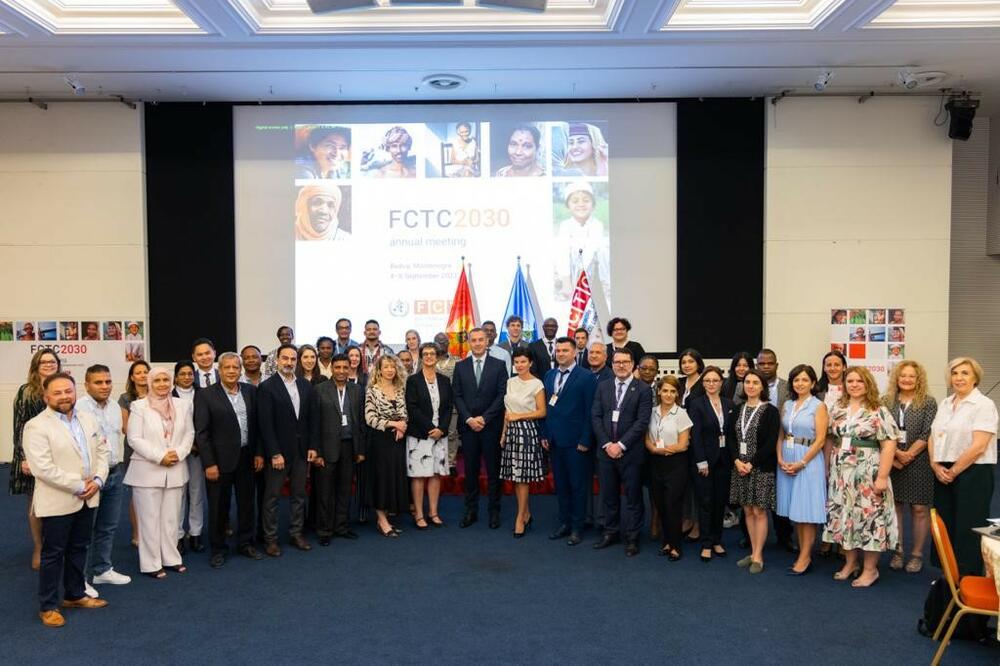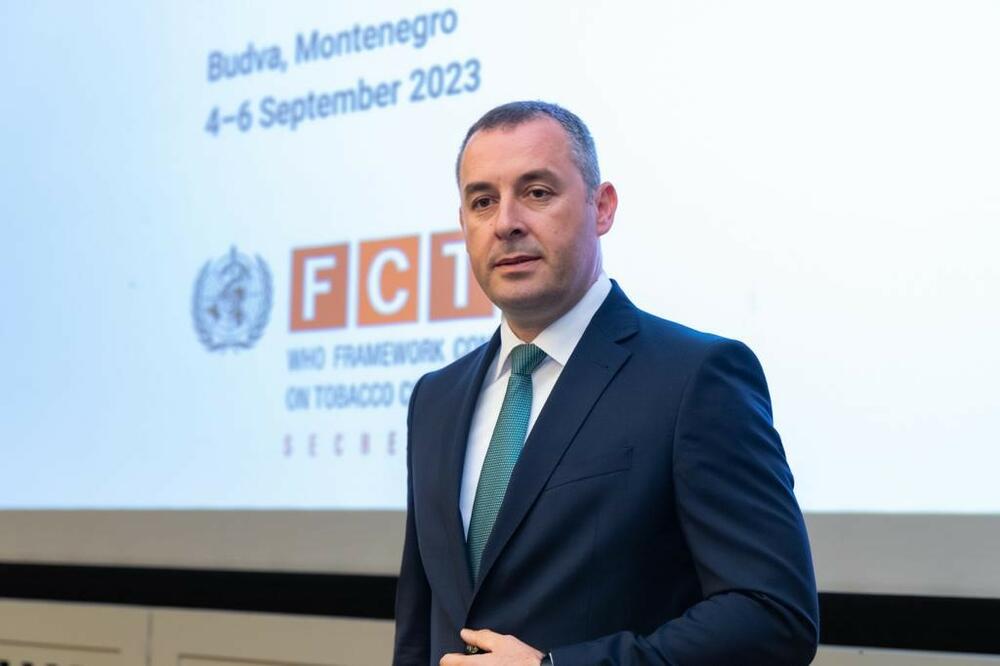In Montenegro, the prevalence rate of smoking is around 35 percent, which is an alarm for the health system and the entire society that it is necessary to implement tobacco control measures, said the Minister of Health Dragoslav Šćekić.
At the annual meeting of the Framework Convention on Tobacco Control in Budva, he warned that the use of tobacco products, as well as exposure to tobacco smoke, is a global problem that causes serious consequences for public health.
This, Šćekić added, also leads to significant health, social, economic and environmental problems.
"Applying the principles of the Framework Convention of the World Health Organization (WHO) on tobacco control, Montenegro has determined national priorities that should be implemented in order to improve public health," Šćekić said.
As announced by the Ministry of Health, Šćekić stated that he is convinced that the meeting will be used to establish the best practices in that area, all with the aim of protecting the health of the population.
Šćekić said that the rate of smoking in Montenegro is around 35 percent.
"This data is a warning and an alarm, both for the health system and for society as a whole, that it is necessary to implement tobacco control measures in order to successfully eliminate the harmful effects of use and prevent possible complications," pointed out Šćekić.
He emphasized that children and young people are particularly exposed to the negative effects of tobacco smoke.
At the same time, as he said, the trend of increasing users of tobacco products among this particularly sensitive population group is also evident.
"As electronic cigarettes become more available and popular, our task is to effectively regulate the use of these addictive products and keep them away from everyone, especially young people," said Šćekić.
According to him, the Ministry of Health has initiated amendments to the existing Law on the Restriction of the Use of Tobacco Products, in order to normatively regulate this area.
It is stated that the most important provisions of that law refer to measures to reduce and limit the use of tobacco products, which include advertising, production, circulation and labeling of those products, banning smoking in public and workplaces and exposure to secondhand tobacco smoke, prevention of influence on minors.
The Head of the Secretariat of the WHO Framework Convention on Tobacco Control, Adriana Blanco Marchizo, highlighted the progress achieved by the participating countries in the FCTC 2030 project.
"The intensive support that we have offered to the countries participating in the FCTC 2030 project represents additional support, in addition to the usual one provided by the Secretariat of the Convention, where technical assistance is provided, contacts with other countries working on implementation and who can help, and engagement at the political level are offered ", she stated.

Marchizo said that in all the states participating in the FCTC 2030 project, they see a variety of activities aimed at tobacco control.
"At the heart of the FCTC 2030 project is policy change, and we encourage states to work towards achieving their priority goals in tobacco control, especially in the area of legislation," said Marchiseau.
The head of the WHO Office for Montenegro, Mina Brajović, stated that she is concerned about the negative impact of tobacco on public health.
As she said, tobacco is an extremely difficult, multidimensional problem.
Brajović pointed out that it should be remembered that deaths and diseases caused by tobacco can be completely prevented.
"Although we cannot minimize the disastrous consequences of tobacco on users and their families, it is important to consider the wider economic impacts," Brajović stated.

According to her, one of the biggest challenges is how to prevent children from starting to use tobacco in order to prevent their lifelong addiction to tobacco in adulthood.
Brajović stated that almost ten percent of young people aged 13 to 15 in Montenegro are smokers.
The Ministry said that the FCTC 2030 project is a development assistance initiative of the Convention Secretariat, which helps strengthen tobacco control in some of the countries that meet the requirements for Official Development Assistance (ODA) by promoting and supporting governments to accelerate the implementation of the WHO Framework Convention on Tobacco Control.
That project, as they stated, is implemented by the Secretariat of the Framework Convention in partnership with the WHO and the United Nations Development Program.
"One of the key elements of the FCTC 2030 project is the provision of direct support to a selected number of countries eligible for Official Development Assistance (ODA) that have demonstrated significant motivation to improve tobacco control according to the guidelines of the Global Strategy for Accelerating Tobacco Control: Advancing Sustainable Development through the Implementation of the Framework Convention WHO on tobacco control 2019-2025," the announcement says.

As the Ministry said, part of the support provided to the countries participating in that project is the preparation of investment studies for tobacco control.
"These investment studies deal with the analysis of the health and economic costs of tobacco use, as well as the potential economic benefits of implementing key measures from the WHO Framework Convention on Tobacco Control," the announcement says.
The FCTC 2030 project is said to be funded by the United Kingdom, Norway and Australia.
Bonus video:




